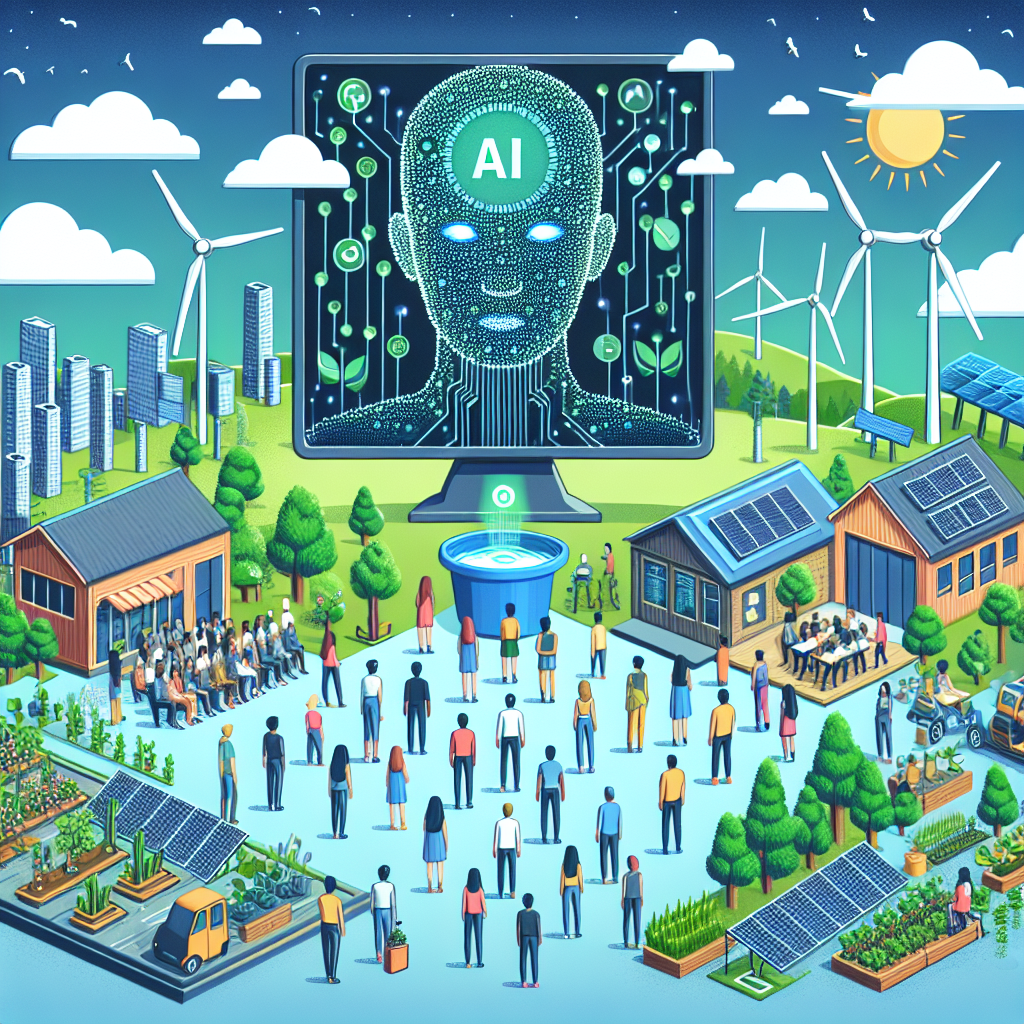In recent years, there has been a growing focus on sustainability and environmental conservation. With the increasing threat of climate change and environmental degradation, it has become more important than ever for communities to take action to protect the planet for future generations. One way that communities can do this is by leveraging artificial intelligence (AI) to drive sustainability initiatives.
AI has the potential to revolutionize the way that communities approach sustainability. By analyzing vast amounts of data and identifying patterns and trends, AI can help communities make more informed decisions about resource management, energy efficiency, waste reduction, and more. This can lead to significant improvements in sustainability and help communities reduce their environmental impact.
One of the key benefits of using AI for sustainability initiatives is the ability to optimize resource use. By analyzing data on energy consumption, water usage, waste production, and other factors, AI can help communities identify inefficiencies and areas for improvement. For example, AI can help communities optimize their energy usage by identifying opportunities for energy conservation, such as upgrading to more energy-efficient appliances or implementing smart lighting systems. This can not only reduce energy costs but also lower carbon emissions and lessen the community’s environmental footprint.
AI can also help communities make better decisions about waste management. By analyzing data on waste production and recycling rates, AI can help communities identify ways to reduce waste and increase recycling. For example, AI can analyze data on the types of waste produced in a community and identify opportunities to reduce waste by implementing composting programs or incentivizing residents to recycle more. This can help communities reduce the amount of waste sent to landfills and lower their overall environmental impact.
In addition to optimizing resource use and waste management, AI can also help communities improve their resilience to climate change. By analyzing data on weather patterns, natural disasters, and other environmental factors, AI can help communities identify vulnerabilities and develop strategies to mitigate risks. For example, AI can help communities identify areas that are at high risk of flooding and develop plans to improve drainage systems or build flood barriers. This can help communities better prepare for and respond to extreme weather events, reducing the impact on residents and infrastructure.
Overall, AI-driven sustainability initiatives have the potential to empower communities to make smarter, more sustainable decisions about resource management, waste reduction, and climate resilience. By leveraging the power of AI, communities can reduce their environmental impact, lower costs, and create a more sustainable future for all.
FAQs:
Q: How can AI help communities reduce their energy consumption?
A: AI can analyze data on energy usage in a community and identify opportunities for energy conservation, such as upgrading to more energy-efficient appliances, implementing smart lighting systems, and optimizing heating and cooling systems.
Q: Can AI help communities improve their recycling rates?
A: Yes, AI can analyze data on waste production and recycling rates to help communities identify ways to increase recycling and reduce waste. This can include implementing composting programs, incentivizing residents to recycle more, and developing strategies to reduce the amount of waste sent to landfills.
Q: How can AI help communities prepare for climate change?
A: AI can analyze data on weather patterns, natural disasters, and other environmental factors to help communities identify vulnerabilities and develop strategies to mitigate risks. This can include identifying areas at high risk of flooding and developing plans to improve drainage systems or build flood barriers.
Q: Are there any ethical concerns with using AI for sustainability initiatives?
A: As with any technology, there are potential ethical concerns with using AI for sustainability initiatives. It is important for communities to consider issues such as data privacy, bias in algorithms, and the impact on jobs and communities when implementing AI-driven sustainability initiatives. It is crucial for communities to prioritize transparency, accountability, and inclusivity when using AI for sustainability initiatives.

